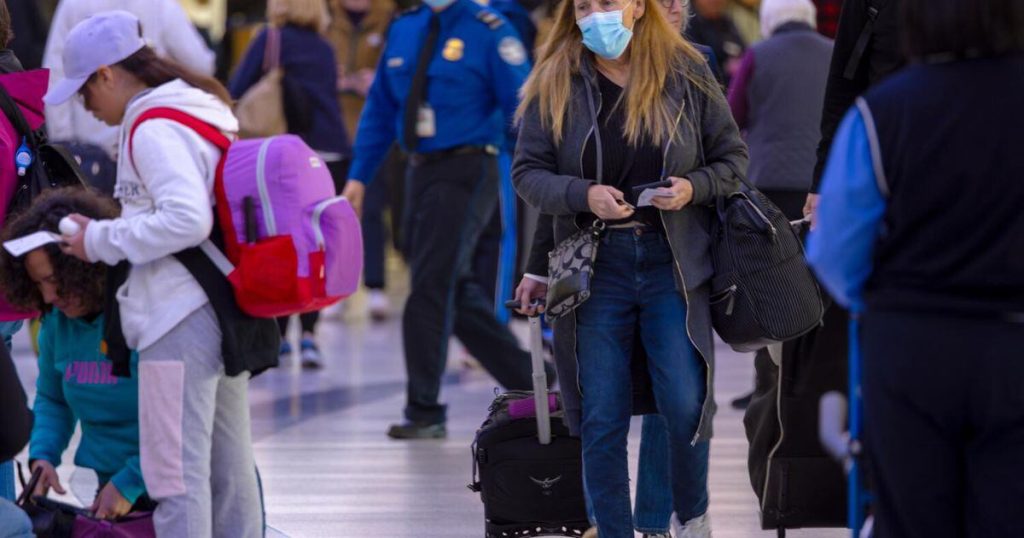Although case numbers are on the rise and it may seem as though everyone now knows someone who has had COVID, attitudes about the virus are changing and many doctors and medical professionals are reevaluating the role of the COVID vaccine at this point in the pandemic.
In Olson’s view, the importance of seeking extra COVID vaccinations has decreased, especially for people who are not at risk for severe illness — a view he is joined by a growing number of doctors.
Seasonal summer outbreaks continue as the world awaits the arrival of the latest vaccines. The U.S. Centers for Disease Control and Prevention no longer tracks case numbers, but estimates trends in the spread of the virus based on emergency room visits. According to the CDC, in the week ending July 20, about 1.5% of emergency room visits in Georgia were reported to be diagnosed with COVID, a slight increase from the previous week. Nationally, 1.9% of emergency room visits were due to COVID, also a slight increase from the previous week.
The FDA announced that a new COVID-19 vaccine is expected to arrive in August or September that will better target recent variants of the virus, and while the Centers for Disease Control and Prevention has generally recommended that everyone 6 months of age or older be given the latest version of the COVID-19 vaccine, some in the medical field are taking a more holistic approach.
“I was initially very much in favor of vaccination because at that point, we had severe disease and people could get very sick, die, need long-term care, have major risks and complications,” Olson said. “Right now, we’re dealing with a much milder disease. And that’s the tricky thing about viruses: They mutate easily and they evade vaccines.”
While acknowledging his views may be controversial, he said, “I think there are a lot of doctors who probably haven’t gotten the booster shot because they feel like they’re behind the curve on the variants that are really emerging. If a vaccine came out that said, ‘This is a cure, so you won’t get COVID anymore,’ I would get it, but that’s not guaranteed with the current vaccines.”
Officials acknowledged that the need for booster shots is not as urgent as it was a few years ago. For the general public, the vaccine now provides a gradual boost of immunity that can wane over a few months. But the FDA, CDC and most doctors agree that the vaccine remains especially important for older people and those with pre-existing conditions. Olson agreed that those at highest risk of severe illness and death should still get vaccinated.
Credit: AP
Credit: AP
As the virus continues to evolve, questions are being raised about whether it is realistic for young, healthy people to receive variant-specific vaccines, especially at a time when vaccine developers are struggling to keep up with coronavirus mutations.
In June, the Food and Drug Administration decided to ask manufacturers to change the strain of the virus that vaccines targeted for the fall. The variants have changed again since that decision was made, but the formula is still expected to be effective, according to the CDC. Health officials say the vaccines will still offer protection against severe disease even if they’re not a perfect match.
Gainesville doctor Andrew Reisman continues to encourage people in high-risk groups to get the vaccine, but he’s not pushing it as hard now because treatments are available and the disease tends to be less severe. He’s neutral on young, healthy adults.
“I say, ‘Are you concerned about COVID-19? Do you want to get the vaccine? Then get the vaccine. If you’re not concerned and don’t want to get the vaccine, then don’t get it,'” said Reisman, a former president of the Georgia State Medical Association.
But that’s only part of the conversation. For those who don’t want to get vaccinated against COVID-19 and want to downplay the virus, he urges people to be aware of cold-like symptoms and not assume they’re just a cold. He wants people to take steps to protect vulnerable people around them by staying home.
“As someone tasked with protecting people’s health, and the health of my patients, it’s really infuriating to me that there are people who don’t think about other people and say that COVID is no big deal, but that it’s so much more contagious than other viruses,” Reisman said. “It could potentially kill people who don’t have as strong an immune system as they do.”
Credit: Miguel Martinez
Credit: Miguel Martinez
Dr. Jane Morgan, executive director of health and community education for Piedmont Healthcare, acknowledged that the current COVID vaccines have limitations and may not be necessary for everyone at this point in the pandemic, but they’re by no means easy or one-size-fits-all answers.
“Older people, people with multiple chronic medical conditions and those who are immunocompromised should be prioritized, unless and until variants change to cause more severe symptoms,” she said. “Unless variants begin to pose a greater health threat and/or the next generation of vaccines are more durable and more broadly effective, there is certainly an argument to be made that younger, healthier people should not be vaccinated,” she said.
But when Morgan said young, healthy people can also spread the virus without getting sick, which is why they can make a case for getting vaccinated.
“There is certainly an (alternative) argument to be made that as we continue in the era of first-generation vaccines while we wait for the next generation of vaccines, we should prioritize protecting the elderly and those who are immunocompromised,” she said. “This does not mean that people cannot live normal lives, but rather that the vaccines benefit everyone, young and old. … The actions of one person affect others.”



